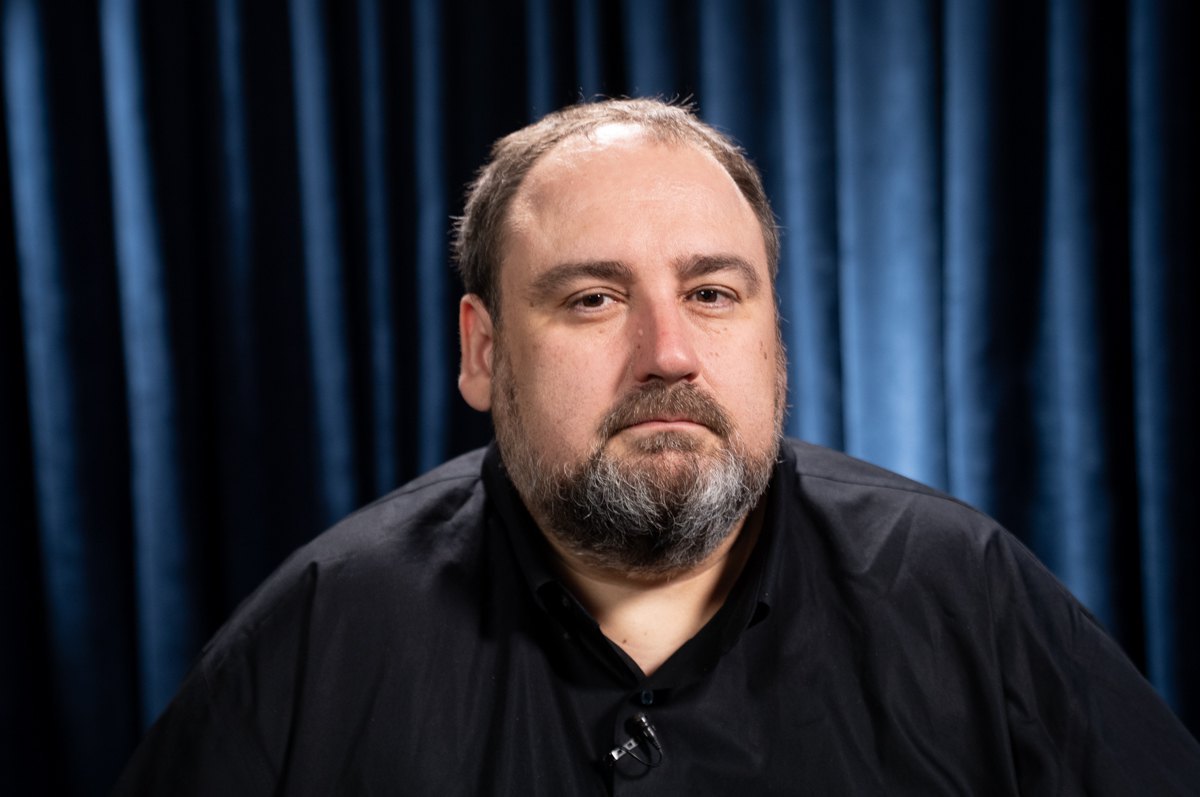
"Injustice sooner or later undermines society."
What does sovereignty mean for a state in today's reality in the context of geopolitics and our future? Some Ukrainian politicians say that we are so dependent on our partners financially and politically that they demand reforms in our movement towards the European Union. Does this mean that we are losing our own subjectivity?
The simplest definition is the right to make decisions for ourselves, including where we agree to give up some of our rights and freedoms and where we insist on them.
Any union is a restriction of freedom by common rules. If we are talking about joining the European Union or, for example, security negotiations, this actually means that we are giving up part of our sovereignty in exchange for something that we believe is more valuable than that part of sovereignty.
The question is whether we do this consciously, whether we are driven into these circumstances and cannot do anything about it, whether we have the opportunity to go in the opposite direction and leave this union, whether we can break off relations at a certain point. To put it in everyday terms, it is like the question of marriage: are we ready for it, are we ready to see two people become something more than one plus one, are we ready to agree on what we do with someone else, and if it does not work out, will we be able to go our separate ways?
We watched the debates after the protests against the law that restricted the independence of anti-corruption bodies. Some politicians in parliament, actually pursuing their own interests, loudly proclaimed that anti-corruption reforms, without which movement towards the European Union would not take place, were a restriction of our sovereignty. Is absolute sovereignty possible, and what are the healthy limits that prevent this concept from being manipulated?
Let's start with the fact that, by definition, in the context of Ukrainian political culture, the position of politicians is not only not the ultimate truth — it is questionable how true it is. The reason for this is the continuity of totalitarian trauma, when the political sphere is perceived as a potential threat to the security of society.
From the perspective of Ukrainian society, it is very important that politicians are not arbitrary. There is a huge difference between arbitrariness and freedom, because freedom has limitations, institutional frameworks that are important not to cross. Freedom can be beneficial to society when we see that it allows us to stop where the rights of other people are violated. Otherwise, we have the arbitrariness of some and the persecution of others. That is, we do not have equality in society, we do not have uniform conditions and circumstances that would allow the law to treat everyone equally. Then the laws apply to some and not to others. Sooner or later, this injustice undermines society.
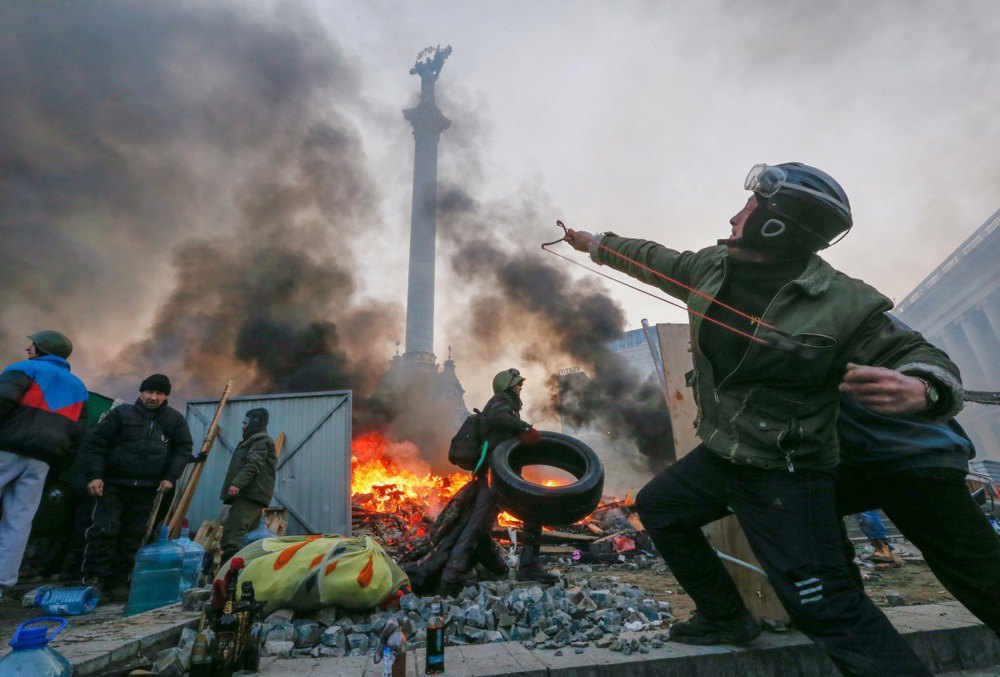
In fact, statements that anti-corruption bodies are a violation of our sovereignty mean that something is wrong somewhere, that something is amiss.
How do the concepts of external governance, which politicians in Ukraine and beyond resort to in their rhetoric, and the issue of independence in global decision-making differ?
External governance would mean that we would be forced to accept some kind of authority over which we have no influence. If we vote for MEPs and are part of global coalitions, it means that we agree to participate in this. And Ukraine is a member of the Council of Europe. If Ukraine joins the European Union, it will be part of the European Parliament. This means that we have influence just as we receive influence from outside, but it does not mean that there is external governance.
External control would mean that we have no right to vote. But we do have the right to vote. If we have differences in our positions but have the right to vote, we can build coalitions with other states and societies and change the position of the majority. We are a full-fledged entity.
External control would mean that we have no opportunity to speak about anything — that is colonial status. If someone believes that we are currently in a colonial status, then I think we need to look for what other interests are there.
To accuse those who are currently helping Ukraine stay afloat and leaving us free to choose our actions during the war of subjecting us to total dictatorship seems a little exaggerated to me.
Moreover, in my opinion, the conditions and conventions that arise, for example, in relations between the EU and Ukraine, are actually very lenient. The Ukrainian authorities and government occasionally take steps that are not very compatible with our European integration, and yet they get away with it.
The lack of criticism in Rome on 9 July (when Ukrainian President Volodymyr Zelensky visited Italy, and on 10-11 July the International Conference on the Reconstruction of Ukraine took place — Ed.) led to a vote [in the Verkhovna Rada] that stripped the NABU and SAPO of their independence on 22 July, led to a crisis, led to a vote on 30 July that was supposed to resolve this crisis, essentially showing how weak Ukrainian parliamentarianism is and how insubordinate a significant portion of MPs are.
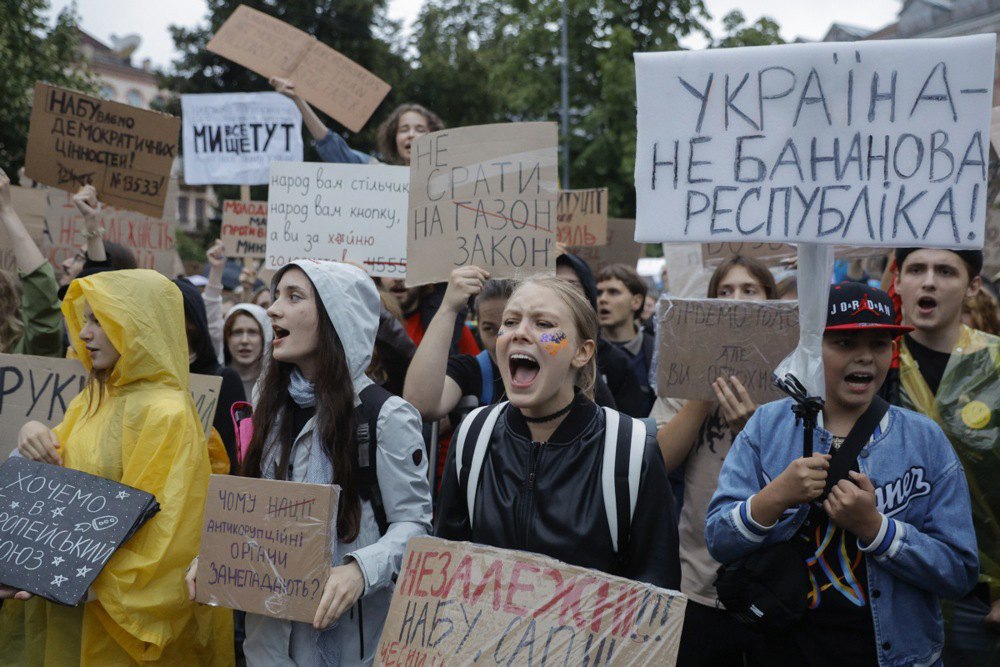
"There is enormous mistrust among the public because they fear that the state may at some point begin to show totalitarian tendencies again."
For many, the pressing question now is how this war will end and whether Ukraine's voice will be key in this. How important is it to preserve the state's subjectivity and sovereignty, given that the Kremlin and Putin seek to control not only the territory but also the Ukrainian state and society?
This is part of why Yaroslav Hrytsak says that Russia has already lost and we are witnessing the final act of the fall of this empire. This fall may take decades and generations, but, he says, it is already the end.
From the point of view of Ukrainian subjectivity, there is also the question of how much we can build healthy relationships within. Can we change the subjectivity of citizens into the subjectivity of the Ukrainian state?
So far, this has been difficult for us because there is a confrontation inherited from the Soviet period. There is enormous mistrust in society because it fears that the state may at some point begin to show totalitarian tendencies again — and from time to time it does.
From time to time, the state shows that it can make decisions that are not based on the recognition of rights and that put political or situational benefits above the rights of citizens. In fact, the Revolution of Dignity was about this. It was about the fact that citizens have the right to make decisions and the state must recognise this right.
This is not the case in Belarus, Russia, or most post-Soviet countries. The situation there is completely different: decisions are made by the elites, and society must agree with them, whether it likes it or not.
At the other end of the spectrum, we see the opposite situation: relations between society and the state in many Western countries are based on trust. This means that the function of leadership is delegated to the administrations of these countries. And that is why the decisions they make are so important. There is trust that works both ways. In the Ukrainian case, there is very little of this trust.
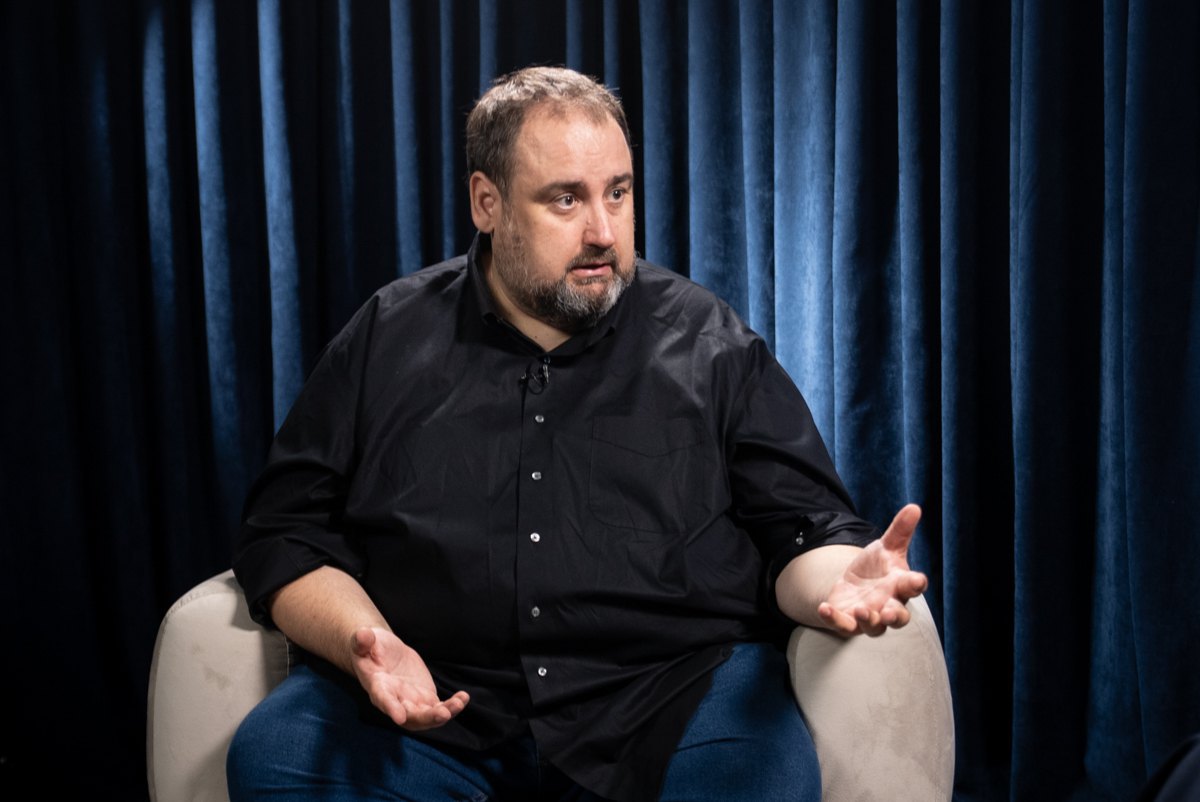
What causes different levels of public trust in institutions? What is this trust based on, and how can it be strengthened?
I would say that we have three layers of trust: one is the relationship between Ukrainians and the institutions that protect them. The armed forces, the church, civil society, and the volunteer movement are those that have a positive balance of trust. Trust in them is quite high.
Then there are institutions that have supposedly begun a transformation, but its results are not yet convincing: the police, the media, anti-corruption bodies, etc. Trust in them is slightly negative, at best around zero.
There is a third group: the central government, the state apparatus in general, the courts, parliament, and so on. This is a group with very low institutional trust. To be clear, we are talking about negative ratings in the tens of percent. This means that the influence of these bodies, i.e. their ability to put something on the agenda and have it accepted by society, is absolutely minimal.
This ranking is based on the assumption of the extent to which these institutions will protect the interests of society in its survival and well-being. Since the good intentions of the central government have not been proven from the point of view of Ukrainian society, it limits the central executive power, parliament, and the judicial branch in terms of how much trust it delegates — and this weakens the system as a whole, creating fragility and problems with governance. But Ukrainian society has no experience of living with well-intentioned, strong institutions. Whenever there were strong institutions, they were malicious. We lived under Stalinism in an environment of strong institutions, and we did not like it.
Until a certain number of administrators can prove that they are governing in good faith, the delegation of trust to the central government will not increase.
We have begun this process at the local government level, where trust has grown systematically over the years since the start of the decentralisation reform. This is a good example of how these relations can be revived.
In general, we need to reset the relationship between the state and the citizen, which dates back to the Soviet period. Due to the peculiarity of how Ukraine gained independence — it was a choice not only of the national liberation movement, but also of the ruling communist group — we have retained a critically sceptical attitude of society towards the authorities.
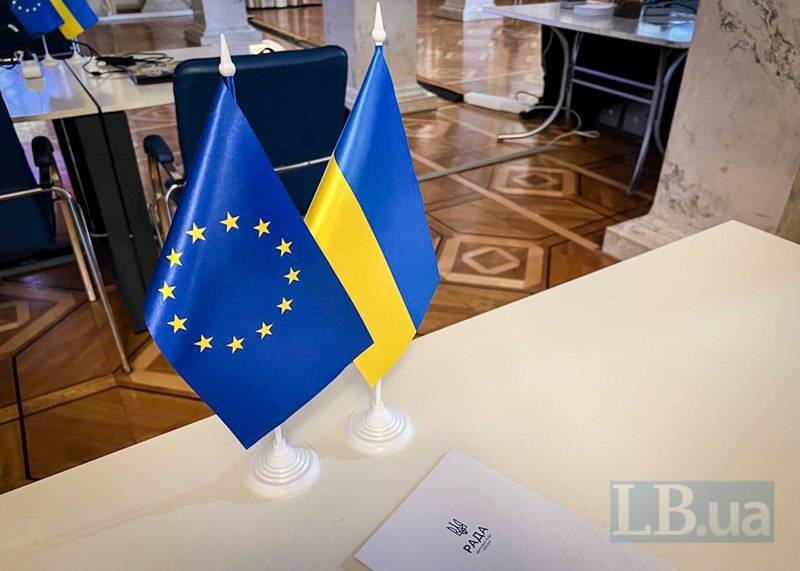
Now, if we join the European Union without resolving the main antagonisms, there is a risk that we will infect our relations with the EU in the same way.
"The consequences of Operation Vistula continue to poison the Polish political scene."
Are we not then at risk of becoming something like a second Hungary for the EU in terms of the rule of law, democracy and other important issues?
Such risks are very high and are intensifying as resentment and anger towards the West grow over the lack of timely assistance and its poor structuring.
This policy is very much based on how much society feels like a victim and how much it tries to exist by lowering its standards for itself because of its victimhood. This is an avoidance of responsibility.
We see in the Polish example that this has effectively infected the Polish political scene. And we see the same thing in the Hungarian example: practically every Hungarian claim sooner or later touches on the Treaty of Trianon.
If we look at Ukraine, I think we have a slightly different situation. Ukraine and Poland, Ukraine and Hungary have significant differences in how homogeneous or diverse their societies are. Poland and Hungary are fairly homogeneous. In Poland, it is very easy to equate ethnicity, religiosity and citizenship.
Ukraine is very heterogeneous, very diverse. Ukraine has a North American, not a European, religious landscape. We have a bunch of different denominations, many truths in one society, and our ethics may not coincide at the level of personal beliefs. We need to develop a social ethic that will coincide at the level of us as citizens. That is why citizenship is so important, our civic subjectivity.
I admit that we may need more safeguards to help us hold on. Because every group in Ukrainian society feels like a minority and, accordingly, considers itself weak, fears that circumstances may arise for discrimination, so it is better not to enter into a zero-sum game, because you can accidentally lose.
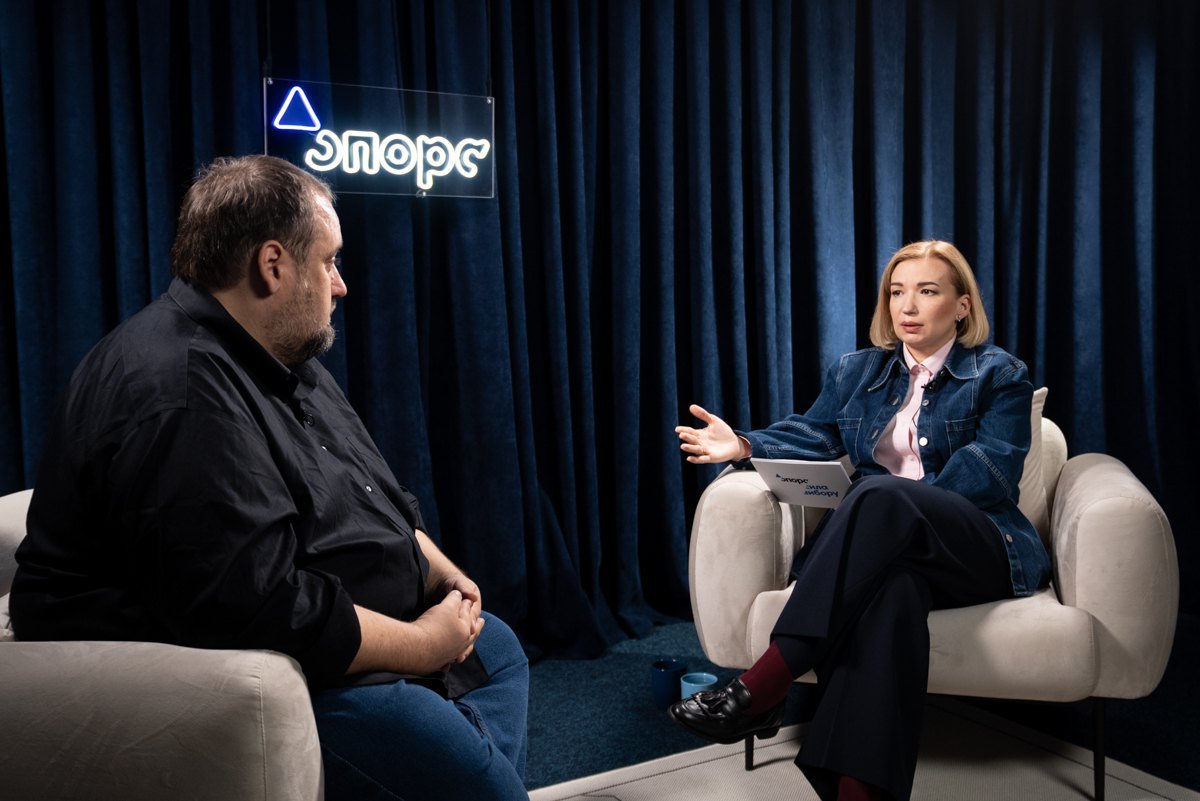
Ukrainian society is not homogeneous. We have different ethnic groups and religions, but at the same time we are not as aggressive towards diversity as we see in Poland, even though the majority of the population is ethnic Polish and Catholic. How can this discrepancy be explained?
Because this diversity exists, it must be taken into account.
In Poland, you don't have to make such assumptions; you can assume that there is a certain homogeneity. Poland, by the way, was not like that. It had territories where Poles were a minority, where Polish was spoken by a minority. Poland lost them permanently as a result of Operation Vistula, when Ukrainians were resettled so that there were no territories left where Poles were a minority. This factor probably had the greatest impact on the willingness to interact with others in Poland. We can practically see that the consequences of Operation Vistula continue to poison the Polish political scene.
If we talk about Ukraine, then most likely we have much more diversity. There is a factor whose critical importance we do not fully realise. We do not fully realise how much we are at a crossroads.
If we look at the issue of security, we will see how much the transaction cost of an attack increases with changing geographical conditions. If, for example, in order to attack, we only have to cross a field — this is the situation on the Ukrainian-Russian border. We have a steppe — and on one side of it, at a certain point, Ukraine ends and Russia begins. The transaction cost of an attack is very low. If there is at least a stream that needs to be crossed, the transaction cost of an attack is already higher. If there is a river, we either need a boat or to build a bridge. If it is the sea or mountains, it is even more complicated.
This is essentially why Britain developed so differently from the European continent. Because the possibility of waging war with neighbours on the European continent was higher than the possibility of waging war with Britain. At the very least, you had to have a fleet.
And that is why the United States of America feels like such an island nation with a huge domestic market, and no country has the power to attack the United States by conventional means across the oceans that separate it from the rest of the world.

At this point, we have often tried to behave like the United States, sometimes neglecting our own security, not understanding that we are in the middle of a busy intersection, like a house on a street corner. Sooner or later, there will be an accident, some car will crash into the corner.
We need to be aware of this, we need to understand how to ensure the sustainability of our resilience, the sustainability of our security, how reliable we need to be in our protection.
"We are surrounded along the entire border by those for whom our subjectivity is uncomfortable."
What challenges do we need to consider when living at a crossroads?
We are at a crossroads, not only between West and East, but also between North and South. We are at many crossroads, and these crossroads are very active and lively. This should give us an understanding of how strong we need to build our relationships with institutions so that they protect us. Because, unlike Europeans in the European Union, we will not have a buffer zone between ourselves and the Russian threat.
It should also be understood that our subjectivity irritates virtually all of our neighbours. Look, our subjectivity irritates the Polish political scene, the current Slovak government, and the Hungarians. Our subjectivity could have become a point of rupture and change in Romanian politics; it was a hair's breadth away from happening. If that had happened, there would have been a threat that at some point the entire western border could be blocked. This is a really dangerous situation for us.
We also see how ambivalent Turkey is towards Ukraine and how difficult it will be to develop Ukrainian-Turkish relations when it suddenly turns out that Kyiv needs to become a regional player to ensure its security, which means direct competition with Ankara.
In fact, this means that we are surrounded along the entire border by those for whom our subjectivity is uncomfortable. There is no other way out of this situation except to simply endure this moment. And it will last a long time. Until the moment when our subjectivity becomes a given for the next generation of political players.
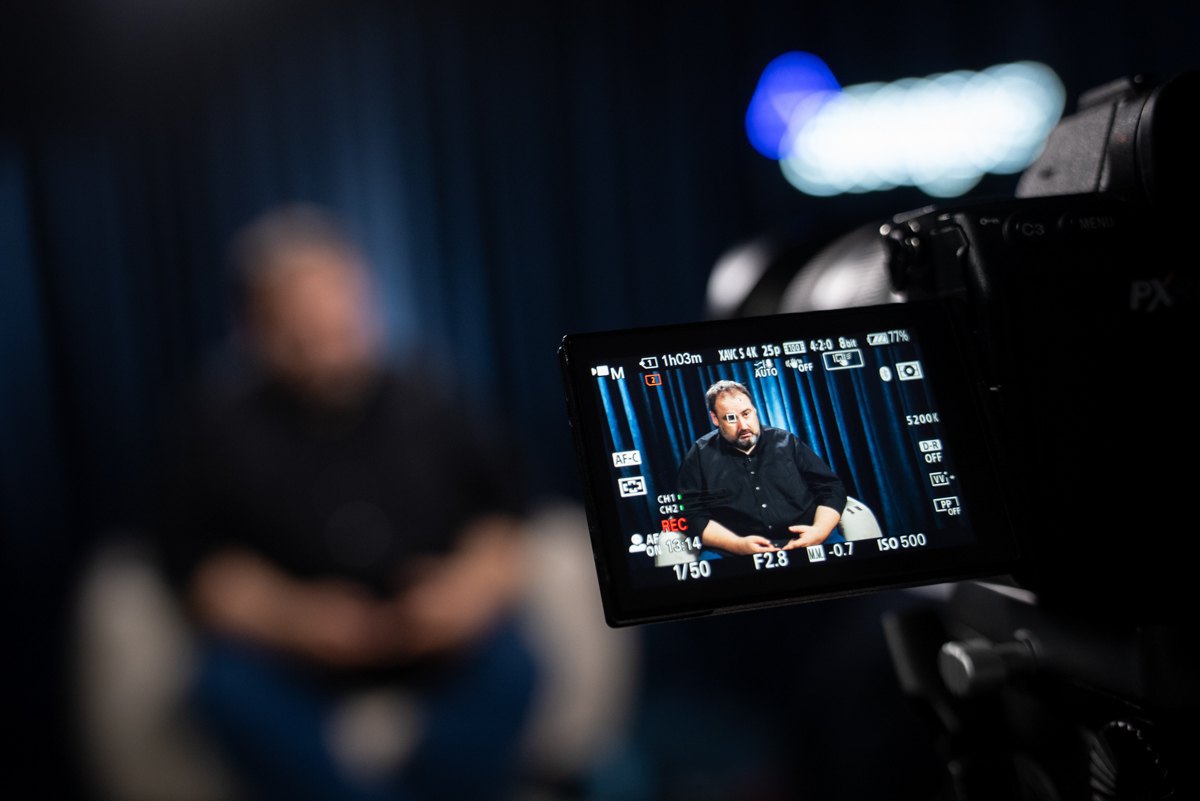
If we look at institutional maturity and continuity of memory, we see that we are surrounded by states that are much older than ours. Our sense of youth or adulthood, maturity, is completely different.
That is why we have proposals for a certain regency of Ukraine, for example, from Poland, which Ukrainians are trying to reject, because then decisions could be made for us that would contradict our interests.
Poland has defined itself as a nation state. According to the doctrine of Jerzy Giedroyc (Polish publicist, politician and social activist, founder and editor-in-chief of the magazine Kultura. — Ed.), it is important for Poland's prosperity to recognise that Vilnius is Lithuanian and Lviv is Ukrainian.
We are now at a turning point not only for conservatives and populists, but also for Polish liberals, who are slowly migrating towards an imperial platform that is effectively confrontational towards Ukraine.
It is difficult to say to what extent the escalation of the security situation will normalise this state of affairs. If we look at what is happening through the lens of immediate reflections, the drone attack on Poland showed how much of Polish society is inclined to blame Ukraine for this.
By taking this position, society reveals itself to be polarised. Is this attitude and discourse influenced by conservatives, populists, or is there a Russian factor?
On the Polish side, we see both the product of years of propaganda and what Ukrainian historians call "poisoning with history." This essentially means that historical issues are dominant in the Polish model of governance. If you look at how Polish politics is structured, one of the things you will notice is that the same strategic place that control over the media occupies in Ukraine in the minds of politicians is occupied in Poland by control over historical narratives.
In other words, politicians identify themselves through museums. That is why such an absolutely fantastic amount of money and political investment goes into the museum sector. Museums are the holders of these narratives. The Warsaw Uprising Museum glorifies a very tragic uprising that took place at the end of the Second World War. Other museums actually explain how political forces conceptualise their policies.
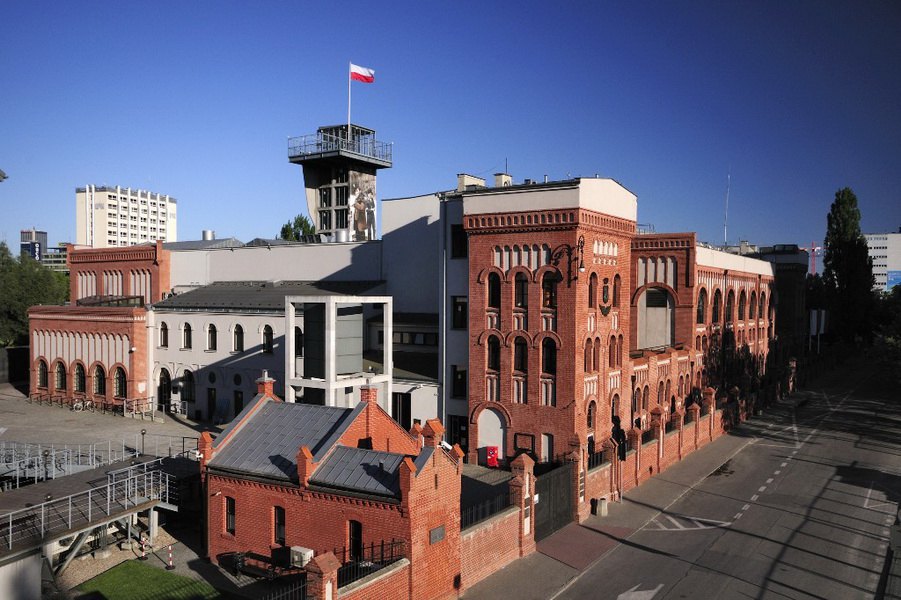
In Ukraine, the story is different, because at the societal level, we have a basic assumption that there is more ahead than behind us. We agree that we cannot agree on many things that have happened in our history, but we also agree that we have a better future ahead of us. For this reason, we must overcome our differences. Will we always be so united? Absolutely not.
However, we can see that the story of a terribly divided Ukraine, West, East, and so on, was temporary, mistakenly presented within Huntington's concept of the clash of civilisations (referring to the concept of American political scientist Samuel P. Huntington, set out in the book ‘The Clash of Civilisations and the Remaking of World Orderʼ. — Ed.) as a permanent, chronic situation that does not change from generation to generation. No, it does change. We see a linear transition from Russian to Ukrainian. We see a linear shift in political orientations from pro-Russian to pro-European. And it has been tracked for almost two generations, that is, it is a long-standing history.
Will we stumble? Quite possibly. We can poison ourselves if, for example, we allow resentment to prevail. If we incorrectly look for someone to blame where there is no one to blame, or, conversely, assign blame where it is convenient for us to accuse our opponents. If we make non-priorities our priorities.
Living at a crossroads means that punishment for mistakes comes very quickly and very painfully. We need to realise that as a society we live and will continue to live at a crossroads. This means that we must accept diversity. There will be many different ways to express our Ukrainian identity, whatever that may be. In fact, we need to agree that this diversity is part of our strength, as is very evident within the Armed Forces of Ukraine.
"Ukraine is a formed political system with four political platforms. But there is a hole in this Ukrainian scene — there is no healthy left-wing movement."
Politics can be a tool for state-building, reform, and the development of legal practices in areas sensitive to society, or a tool of destruction in the form of populism. What political forces shape the Ukrainian political landscape, and what trends can be identified from the retrospective analysis of the parliamentary elections?
It seems to me that Ukraine is a developed political system with four political platforms. Each platform can be represented by one or more political forces.
There is a reactionary pro-Russian political platform, which was represented by the communists, partly by the socialists, progressive socialists, then by the Party of Regions, then by the Opposition Platform — For Life and the Opposition Bloc. I admit that, most likely, we will see some kind of Eurosceptic movement emerge in this place.
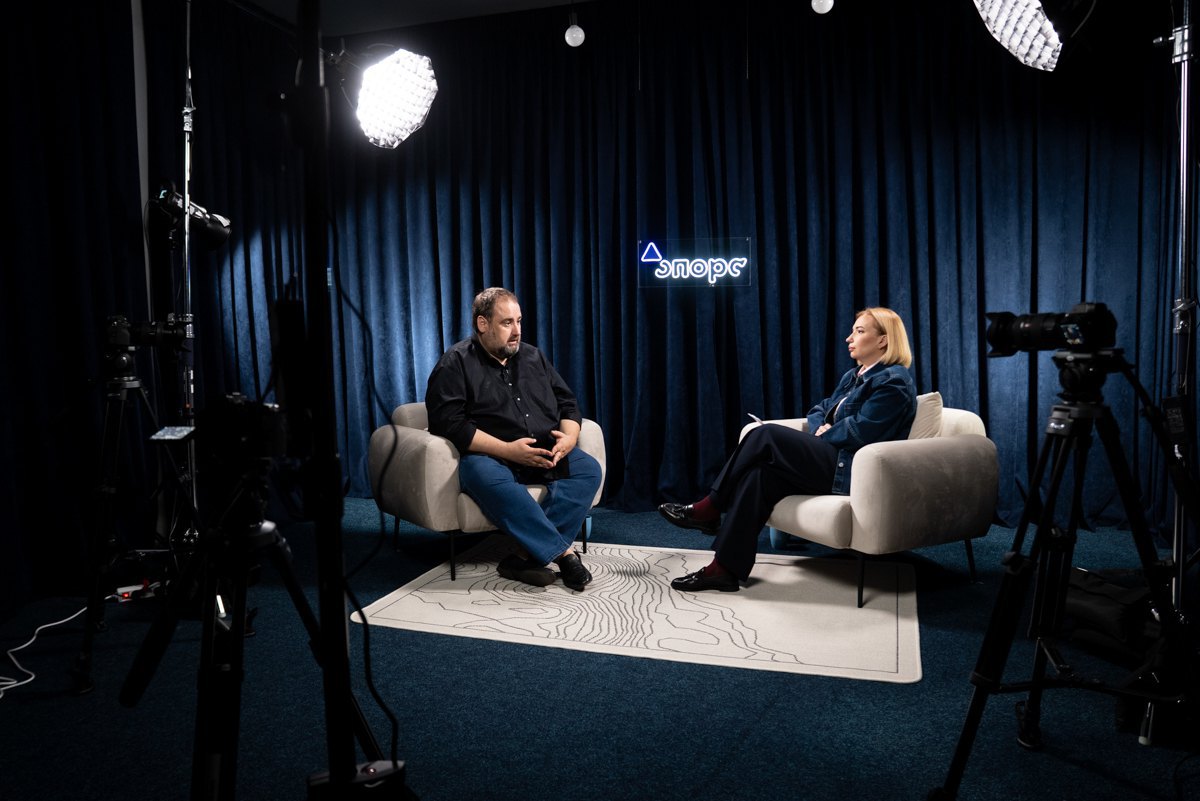
What I see as a gap in the Ukrainian scene is the absence of a healthy left-wing movement, pro-Ukrainian leftists or patriotic leftists. They have a very marginal presence, mainly in intellectual clubs, but the Ukrainian left-wing movement has so far been completely taken over by populists who respond to paternalistic demands. In fact, this means that there is not yet sufficient subjectivity among Ukrainian paternalists. And they still allow themselves to be manipulated to a large extent.
Once this fifth force in the form of the Ukrainian left emerges, I think there will be much less room for both pro-Russian and populist forces. Then we will be able to say that we have entered a more or less stable political field.
If these political forces are conscientious, if they are, conditionally speaking, the political forces of a healthy person, then this system will take root. If not, it will mean that someone from the outside is undermining them.
So far, it has been a linear process. We had a fantastically centrist political discourse. In my opinion, this was largely because society was afraid to rock the boat. Practically since the beginning of independence, we have seen very conformist voting among Ukrainians. It took some time for Ukrainians to understand how radical or non-centrist the communists are, but in general, Ukrainians tried not to give radical forces much electoral support.
In the last parliamentary elections, nationalist parties united in a common bloc and still gained less than 2%. When we look at this factor, we understand that it is a consequence of fear within society: if you rock the boat, you will suffer yourself.
Since 2014, there has been a change in the internal mood, which will have a very serious impact on future politics. For the first time in Ukrainian discourse, there is a sense of internal strength, and in some cases even superiority over the West. We are stronger, more resilient, we can survive, while they do not know how to fight, stand up for themselves, and so on.
We have not yet encountered this in modern Ukrainian statehood. We do not know how this strength will manifest itself: whether it will turn into a discriminatory movement, a movement of superiority, or, on the contrary, will compensate for the trauma and balance and stabilise political discourse. It is impossible to predict what this will look like, because there are many external factors that influence how we will assess ourselves.
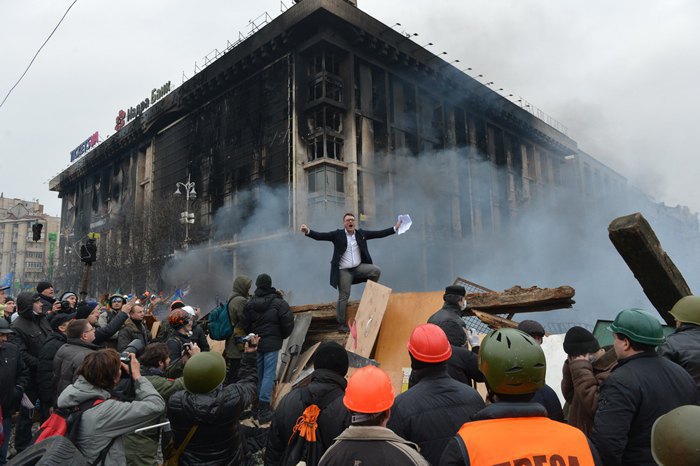
We need to focus on ensuring that European integration takes place under the best possible conditions.
If we allow unnatural, excessive compensation for trauma, anti-Western propaganda mixed with feelings of resentment could spill over into the mainstream in the first post-war elections, which would be detrimental to the development of relations with our partners. Do you see this as a challenge?
I don't see a problem with being critical of the West. We must defend our positions and our interests. Moreover, the Western model provides many tools for doing so. It seems to me that the problem lies in scepticism towards the West, not in criticism. Because scepticism does not allow for a change of position. It means that you have already given up on it. The only option we have left is to rely on our own strength: with an economy that is less productive than Greece's, with the demographic situation we have, with a configuration of neighbours who view our subjectivity as a source of irritation. This is self-destructive. In fact, it means that we want to cause ourselves irreparable harm.
That is why many people have reservations about the European Union, about the accession procedure, about the issues we will have to agree to, while generally saying that there is no alternative to European integration. We need to focus on ensuring that European integration takes place under the best possible conditions.
There will be a different configuration at some point, and then it will probably be possible to talk differently, but I do not see how this could happen within our lifetime. We can already say with certainty that this war will be prolonged. And not because the Russians are so strong, not because we are incapable or anything else.
In the West [and the only way we can win is in coalition with Western forces], there is no readiness for a Russian defeat. It is not conceptually considered as an option. They are considering the option of a truce, the weakening of Russia, but they are not considering the option of the defeat of Russian imperial statehood.
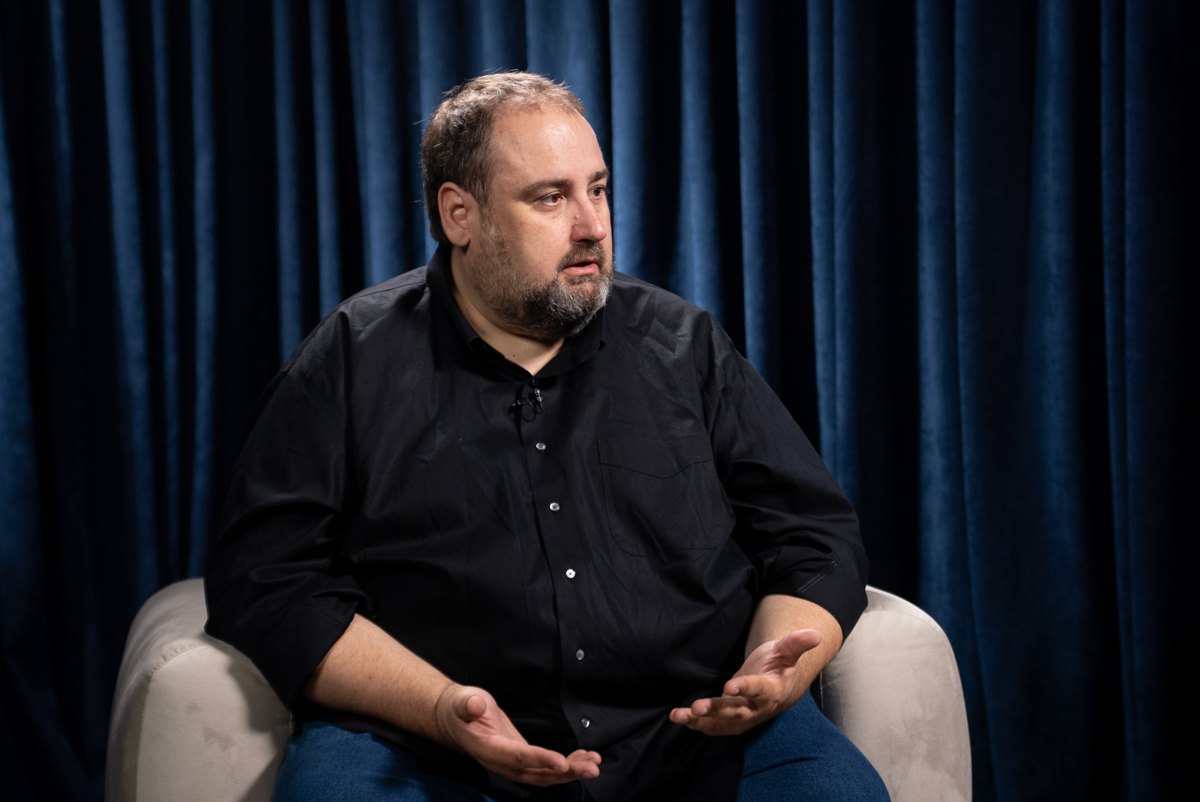
Firstly, Russian imperial statehood as such is not universally recognised outside Ukraine. Some players tend to view Russia as a major power. Some of the so-called major powers within the concept of realism in international relations see Russia's loss of status as a threat to themselves. Accordingly, they do not want Russia to be in a situation where its borders and the essence of its statehood are changed.
There are other players who see a threat in the collapse of the land empire. Because Russia is not alone. China and India are structured in a very similar way.
If we talk about this difference in the Ukrainian and international approaches to Russia, Ukraine understands that for our survival it is important for Russia to suffer defeat, as a result of which a mechanism for rethinking priorities would be launched and what happened to European countries would happen.
France, Italy, Germany, Portugal, Spain, Great Britain — all of them suffered defeats that led to the collapse of their empires. And then they became ready for the modern European project. If this does not happen with Russia, it will always be a threat to us, we will always have high defence costs and be on high security alert. This threat is prolonged in time. And, unfortunately, this means that we as a society will have to militarise. Our children and grandchildren must be prepared to be strong enough that the Russians will not risk attacking us in any way.
The problem is that this is a serious blow to our quality of life. It means that we will have to prioritise huge expenditures on security. If we do this on our own, rather than in partnership with others, we may exhaust our resources. Our tax base may not be sufficient. The United Nations Population Fund currently estimates that, all other things being equal, Ukraine's population could reach 15 million by the end of the 21st century.
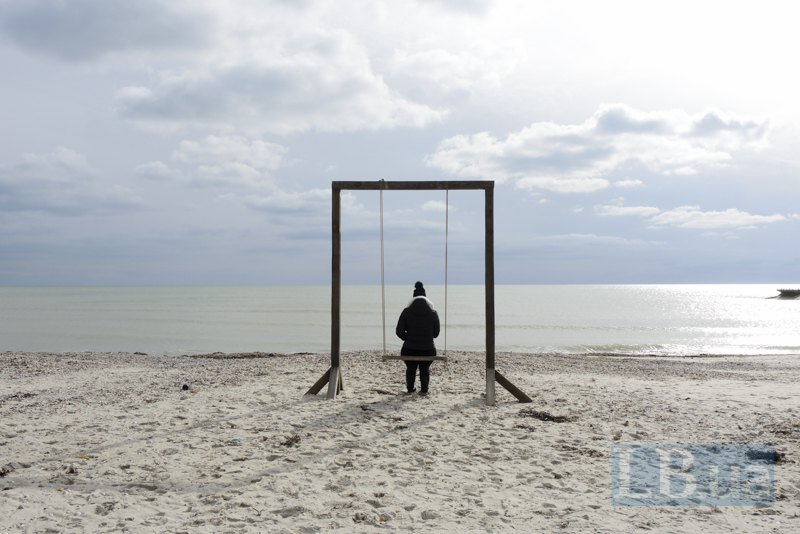
We are moving into a century with enormous security and technological challenges. We are moving into a fragile world. In this fragile world, on the one hand, Ukraine has a tremendous advantage because Ukrainian society knows that the world is not safe. For the last hundred years, if not more, we have existed in conditions of terrible insecurity. And for us, this situation is understandable.
This is better than having four generations of security surplus and a similar poisoning by security surplus, as in European countries. But this means that if we respond to all these challenges ourselves, we will very quickly lose our quality of life and, accordingly, very quickly cease to exist as an effective system, as a state, as a country.
This means that we must be very smart about alliances and about shifting part of our burden onto other shoulders so that we can withstand the pressure that Russia will exert on us thanks to this commonality.
"The next generation of Europeans will have to live in less secure conditions."
Will Europeans be willing to support us and invest in security, given that expectations and fears of an even greater war are growing in Europe?
This is not only a question of funds, but also of willingness. Ukrainian society exists under the basic assumption that life is difficult and not necessarily fair. This assumption is very different from the assumption that exists among the people of Western countries, and the further west you go, the more so. In fact, there is still some willingness to go and form a resistance system in Poland, but in Germany it is already very low, and the further west you go, the lower it gets. If we look, for example, at extra-institutional resistance, the willingness of society to resist outside the armed forces, the situation becomes very sad indeed.
What Western political elites are partly aware of but do not talk about is that Ukraine must not be allowed to fall. Because then their problems will become very serious.
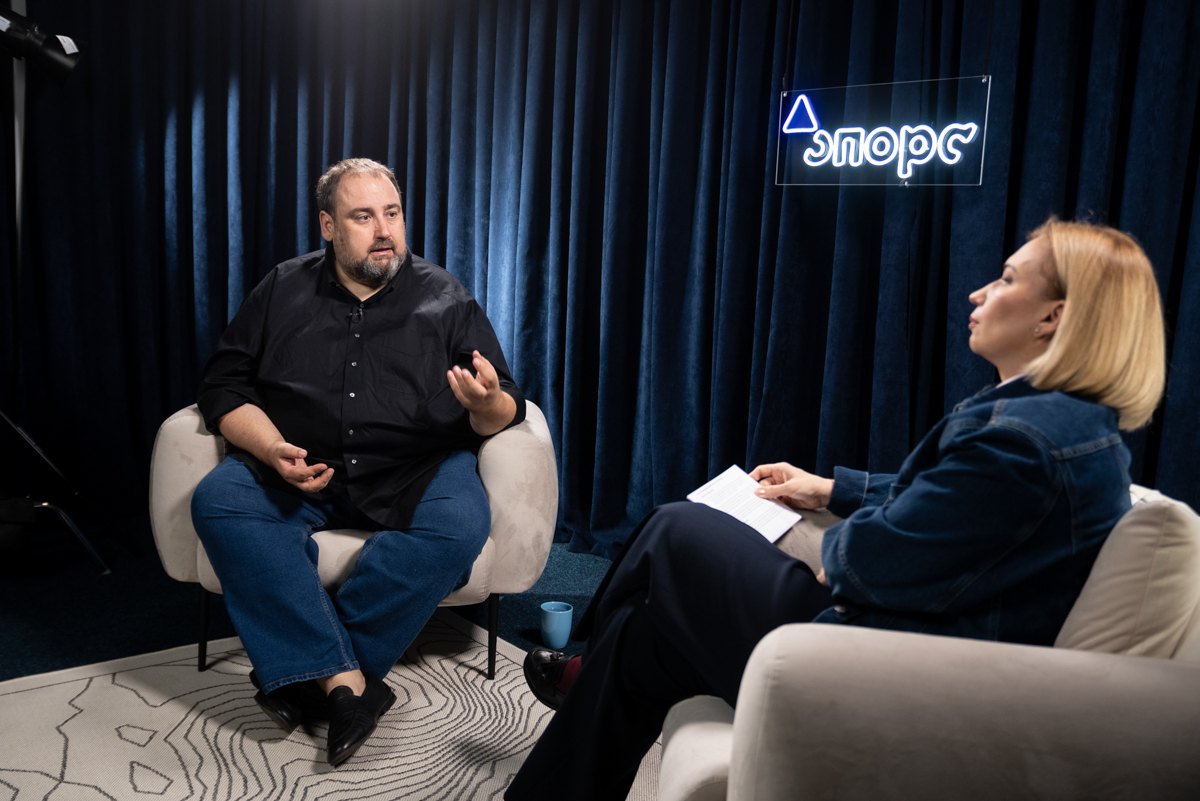
I will paraphrase what Yaroslav Hrytsak often says: as Ukraine globalises, the world becomes more Ukrainianised. This means that the next generation of Europeans will have to live in less secure conditions. They can no longer take security for granted. We can see in the budgets how defence spending is rising sharply.
At the same time, this means that the quality of life will decline and opposition within society will grow. For Western societies, this departure from comfort may seem very difficult, with possible protest voting and an increase in the number of radicals coming to power. This is one of the reasons why the current European Commission is trying to rush Ukraine's accession to the European Union as quickly as possible, by 2029, because it is unclear what the European Commission will look like after that.
On the other hand, if we rush now — and I have the impression that both Ukraine and the European Commission are trying to rush — there is a risk that we will join the wrong European Union. There is a risk that we will join a "welfare union." If a "welfare union" does not provide answers to security questions, it becomes a target. This means that we need to join a geopolitical union. Joining a geopolitical union should be much more political for Ukraine than it is now.
We currently have a list of very technical requirements from the European Union, although there are also substantive issues related to democracy and governance. We need to be ready to present the Europeans with a list of requirements for the European Union to join Ukraine.
It should primarily concern security issues. How their security ethics are formulated, how ready societies are to take responsibility. In fact, this is a test of maturity for the whole of Europe and for Ukraine as part of Europe.
We can pass the test of maturity if we exist. It is impossible to ensure the stability of the state without human capital. How do you assess the permission for men under the age of 22 to travel abroad — can this help to correct negative demographic processes? What should migration policy be in the future?
Anyone who sees the Ukrainian demographic pyramid has no illusions about what the 18-25 age group looks like. It is the smallest age group. We do not have a large demographic reserve among young people.
It is fundamentally important for us that these people stay here in the long term. If these people leave at the age of 17, their socialisation takes place in other societies and by the age of 25 they are already rooted there. Therefore, the decision to allow men between the ages of 18 and 22 to leave seems very sensible to me.
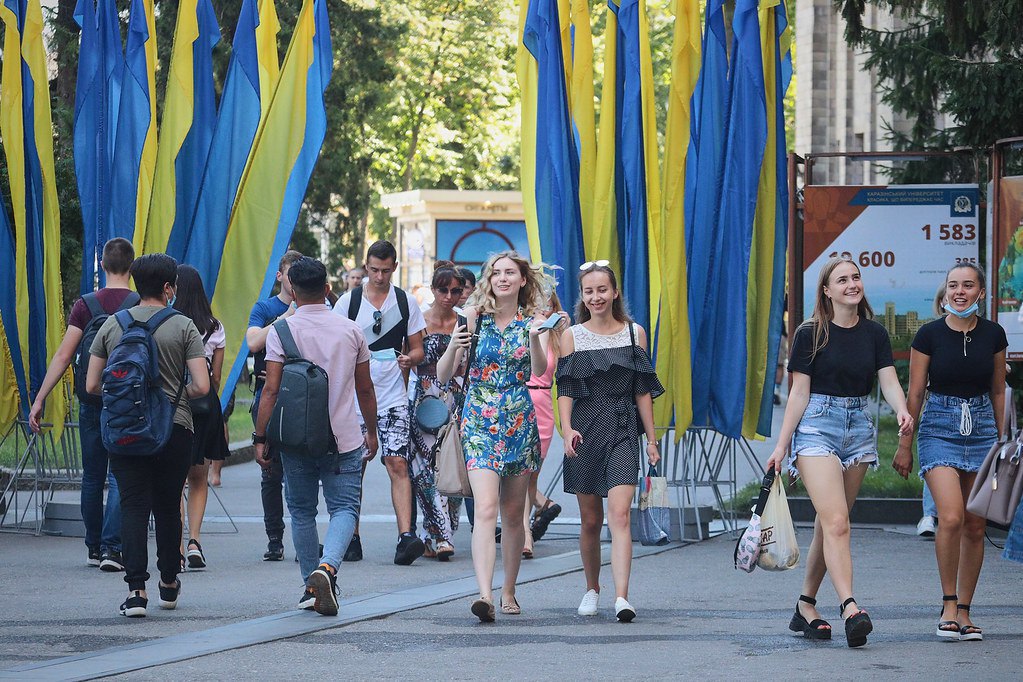
Yes, there will be a wave at the beginning, and it will be as big as the distrust of the state. But ultimately, we will have more people whose socialisation takes place here, and as a result, we will have more potential parents — so that we will have more potential children, and so on.
We will not be able to move forward without a sensible migration policy that focuses on attracting people to Ukraine, not just on emigration.
It seems to me that, strategically, parents who take their children abroad in an attempt to give them a better life are doing them a disservice. Because when they take them to countries where society is weak, resistance is weak, and national resilience is low, they are actually weakening their children. And when, God forbid, a Russian or some other attack occurs on those societies, they will not be able to cope.
In Ukraine, despite all the risks, this is life in a country that keeps people in a state of high readiness for resistance and high resilience. This is what will be needed in this complex 21st century. I admit that this may be a factor that will greatly attract others to Ukraine. Because Ukrainians have something in their culture that helps them survive. This will become valuable.
We must keep the door open for Ukrainians who have left and may return. We must also understand that a significant proportion of Ukrainians who have left will not return, and therefore we must begin to get used to the idea of global Ukrainianism and think about how we interact with all these networks, how we support them, how they support Ukraine, and whether they can become actors within the political systems where they live. Should there be a pro-Ukrainian movement in German, French, Polish, American and other politics? This is what we need to continue working on.
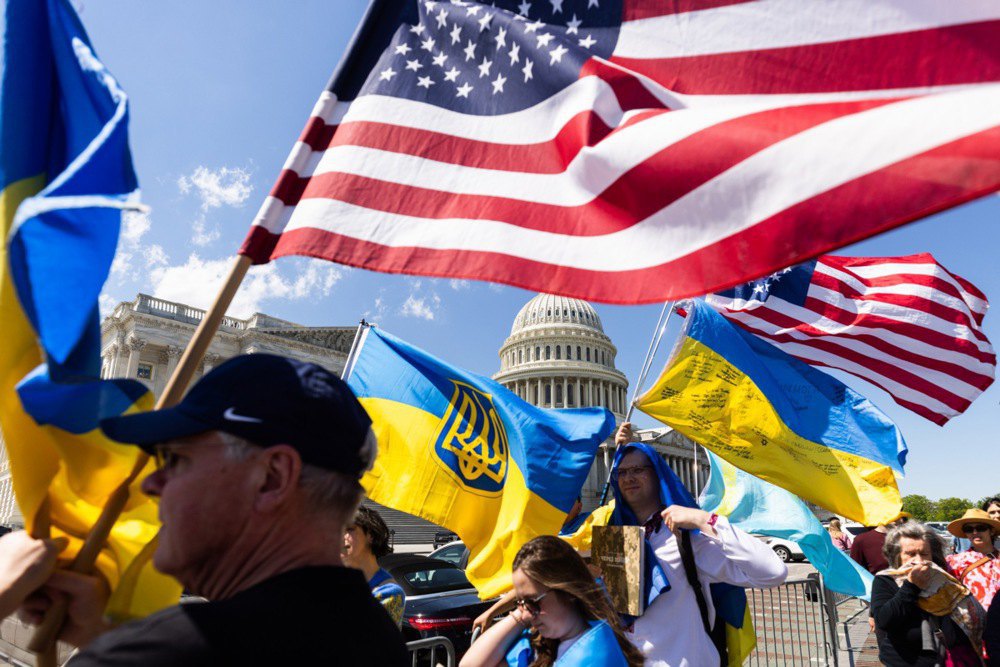
This is a completely new approach. If we try to close ourselves off or follow the European path of migration policy, where migration is effectively subject to labour markets, this will lead to an escalation of conflicts.
It is important for us to strengthen our cultural institutions, which will help people from other cultures to settle into Ukrainian society and acquire a Ukrainian identity. We need to help people learn Ukrainian abroad, we need to help people who are coming here to understand where they are going. It is worth it. And it is important. It is part of our resilience. Ultimately, our migration policy will be successful when people who move here from other countries are ready to defend Ukraine with weapons in their hands.
If we do not build an appropriate layer of cultural institutions for adaptation, we will in fact follow the European path, where migration begins to pose a threat to the continuity of cultural development in societies.
We already have their experience, we can take it into account. We will now have to look at how we can build a presentation of Ukrainian identity outside Ukraine as one that offers good chances of survival and a better ability to cope with new challenges than any other.
One of the consequences of the Soviet legacy is that Ukraine has very high social mobility. We can move from one social stratum to another within our lifetime, and this movement is very active. Such social mobility does not exist in many developed countries.
Germany, the Netherlands, and Britain are class societies. If we look at Ukrainian social mobility, representatives of the lower classes of developed societies in Ukraine may have better opportunities than they would at home. If we can sell this idea correctly, we can become beneficiaries of the quality of their education systems, beneficiaries of a different work ethic that they can bring with them, and so on.








